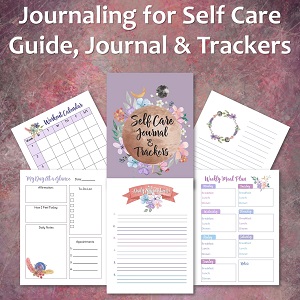 The workplace is a common site for stress. You might be experiencing it on your job because the amount of effort and time you’re putting in isn’t reflected in the amount that you’re paid.
The workplace is a common site for stress. You might be experiencing it on your job because the amount of effort and time you’re putting in isn’t reflected in the amount that you’re paid.
It could be that promised raises are slow to happen or aren’t given at all. The stress could come from reaching a position within the company that leaves you stuck. There’s just no room to move up.
Or maybe your job doesn’t interest you. Sometimes job stress happens because someone else isn’t doing his or her work and you’re left to pick up the slack. Perhaps you have a demanding or nonsupportive boss.
Whatever it is that’s causing your job stress, there are multiple ways to deal with it and it begins through the use of self care. You must first name whatever it is that’s behind the stress.
Write it all down and you’ll learn how it affected you. For example, if your coworker blew off doing his share and you had to do it, what was the physical response you gave in return?
Did you drink multiple cups of coffee? Did you get a headache? Was anger, anxiety or situational depression your response? You want to understand how you reacted because that’s the first step toward developing a good self care plan.
Knowing will help you understand how to react positively rather than allowing the stress to cause problems for you physically or emotionally. You’ll learn to turn to things like taking a break for a brief walk rather than heading to the break room and having a donut.
Stress can be all around you at the job but that doesn’t mean you can’t stop it from affecting you. Put up boundaries with your coworkers, with your boss, with the workload, and with the treatment you receive.
Whatever the stress is, deal with it. Boundaries help you know what your space is and it teaches other people to respect those boundaries. For example, part of your stress might be that your job isn’t actually over at the end of your shift.
You’re getting emails, phone calls or text messages from coworkers or supervisor wanting you to handle something. Your boundary can be that once you clock out, you’re not back on duty until the next business day.
If it’s not an emergency, you’ll deal with it later. You must keep a line drawn between your work and your time off. Keep your phone off if you have to and don’t respond to emails or messages.
Another great self care rule to establish to deal with job stress is to make time for yourself. Don’t allow work to eat up so much of your emotions or time that you’re too exhausted to relax.
You need to de-stress from work by taking the time to relax and do whatever it is that you enjoy doing. If the stress is caused by conflict at work, talk to whoever heads up your department or your immediate supervisor if he or she isn’t part of the problem.
This will allow you to identify the action steps you need to take to resolve the situation.




